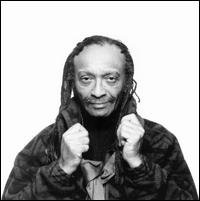Intrepid reader had done a masterful job of interpreting my current playlist. I am tempted to leave it at that. But I will resist the temptation.
I began with a duo by Mal Waldron and Marion Brown, because I wanted to feature Brown. Brown is one of those big souls who leaves a small mark. But don't miss it! I followed that with a piece from John Coltrane's album Afro Blue Impressions. This is part of a body of work recorded by Trane in Europe in 1963. I think you can get a box with all of it. The piece is Naima, one of the most beautiful ballads in modern jazz. Bass - Jimmy Garrison, Drums - Elvin Jones , Piano - McCoy Tyner.
I offered that only to set up the next piece by Archie Shepp from Four For Trane. Listening to Trane's version, you can really appreciate the invention in Shepp's groundbreaking album. Bass - Reggie Workman ,Drums - Charles Moffett ,Saxophone [Alto] - John Tchicai ,Saxophone [Tenor] - Archie Shepp, Trombone - Roswell Rudd , Trumpet - Alan Shorter. I am simply amazed by this work.
That got me to Marion Brown's album, Three For Shepp. The connection is obvious, and it offers an example of how I listen to music: like a bloodhound following a trail. Bass - Sirone, Drums - Bobby Capp ,Piano - Stanley Cowell, Trombone - Grachan Moncur III.
The rest of the playlist is devoted to Andrew Cyrille, Grachan Moncur III, a lot of Reggie Workman, and Booker Ervin. I hope to offer some more information, but for now this will have to do. Love to all.














